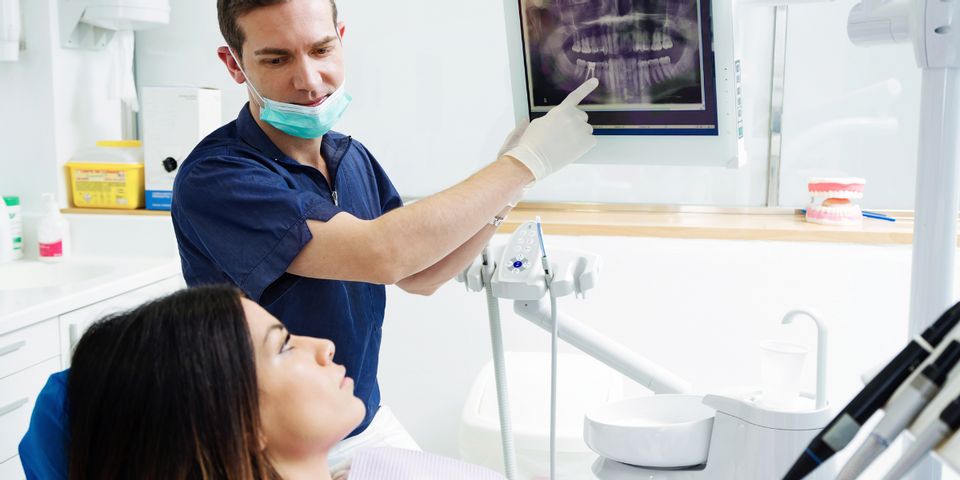
Wisdom teeth are the last adult teeth to come in. These molars typically erupt when you’re in your late teens or early twenties. While most people will get between one and four wisdom teeth, some people don't develop any. When properly aligned, they are harmless; when they’re impacted or fail to erupt, they can cause oral health issues. In addition to consulting your dentist, the following guide will prepare you for managing your wisdom teeth.
When Are Wisdom Teeth a Problem?
Anthropologists believe that wisdom teeth were essential to an early human diet, consisting of raw meat, roots, leaves, and nuts. Over time, as humans learned to cook food and cut it into small pieces with utensils, the need for wisdom teeth lessened, and the human jaw evolved to grow smaller.
Most people’s jaws are done growing by the time they’re 18, but wisdom teeth often come in after that and cause crowding. Further, if wisdom teeth are misaligned, they can damage adjacent teeth, the jawbone, and nerves. In such cases, your dentist will recommend extraction.
Wisdom teeth also require extraction if they're impacted. In other words, the molars partially erupt through the gum or remain enveloped in gum tissue or the jawbone. Either way, impacted molars can cause cysts or create an opening for bacteria to enter the gums and cause infection.

How Do You Know if You Have Impacted Wisdom Teeth?
Impacted wisdom teeth don’t always cause symptoms, but be on the lookout for red, swollen, or bleeding gums. You might also experience pain in the area behind your last molars or even feel the teeth trying to come in. As this area is often hard to clean, especially if soft tissue grows over a tooth, it might cause bad breath or an unpleasant taste in your mouth.
If your impacted tooth gets infected, it may cause swelling and pain in the gum and jaw. Movement and crowding of surrounding teeth might also put excess pressure on the TMJ joint, causing jaw pain.
When & How Are They Removed?
In some cases, dentists might recommend extraction before you develop symptoms. This way, you’ll avoid discomfort and complications that may arise when you're older once teeth roots are fully developed and harder to remove. When wisdom teeth break through the gums without causing discomfort, they most likely won't require removal.
There are several types of extractions. When the wisdom teeth are visible, the dentist will perform a simple extraction. After the patient is given a local anesthetic, the tooth is pulled using dental forceps.
Partially impacted teeth might require surgical extraction, which can be performed at your dentist's office. First, the doctor will provide you local anesthesia or general anesthesia to numb any discomfort. After making an incision in your gums and removing any bone blocking the impacted teeth, they will remove them and stitch up the wound. The area is loaded with gauze to slow bleeding.
In cases where teeth are fully impacted or buried deep in your gums or jawbone, your dentist might refer you to an oral surgeon more experienced in complex cases.
How Is Recovery?
Most people experience swelling and discomfort after surgery. For the first three days, your doctor will likely recommend icing your face to control swelling and taking prescription medications to ease the pain. You might also experience bleeding but should avoid excessive spitting as this might dislodge blood clots and expose sockets.
Avoid cleaning your mouth during the first 24 hours after surgery. After that, you can resume brushing gently. Rinse your mouth with salt water every two hours and after meals for a week.
At first, you should stick to soft foods like yogurt. When healing has progressed, you might start eating semi-soft foods like pasta or rice.
For skilled wisdom tooth extraction, rely on Daniel M. Hamrick, DDS in China Grove, NC. Dr. Hamrick and his team provide comprehensive oral health care for patients of all ages. In addition to extractions, this full-service practice offers routine check-ups, cosmetic dentistry, root canals, sealants, and emergency dental care. They employ the latest technology to provide patients with the best care available in a warm and compassionate environment, so going to the dentist becomes a positive experience. Call (704) 857-7497 to schedule an appointment. Discover more about their services online.
About the Business
Have a question? Ask the experts!
Send your question

